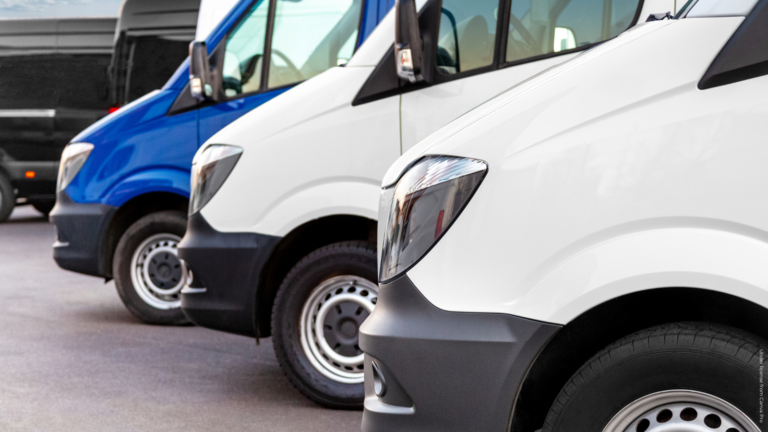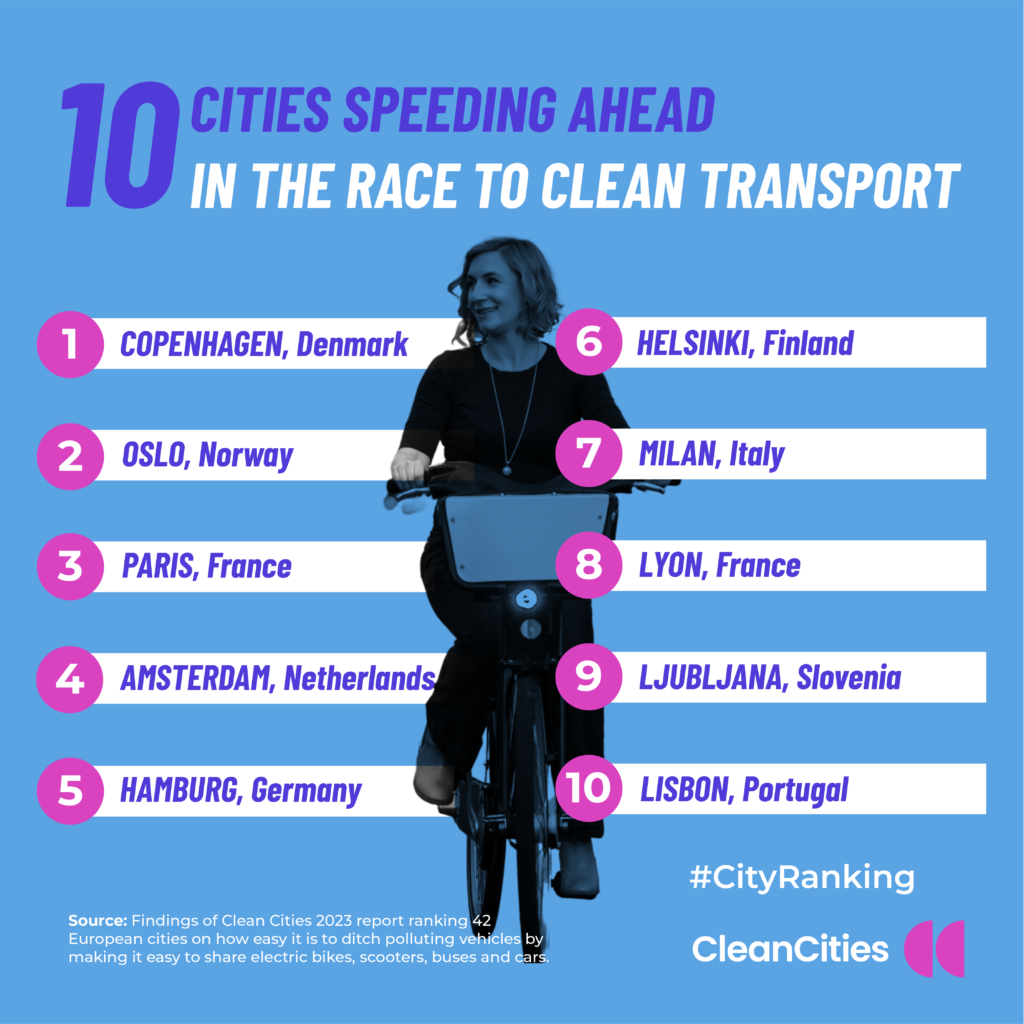
Cities are making progress on shared and zero-emissions transport
July 3, 2023
Shared and zero-emissions transport can be a shortcut to reducing emissions and pollution from road transport - find out who's doing best on shared scooters, bikes and EVs
The Clean Cities Campaign (CCC) has ranked 42 European cities on their efforts to introduce shared and zero-emission transport options. And there were some surprises.
Beyond the usual strong performers like Copenhagen, Oslo and Amsterdam, cities doing well include Ljubljana, Budapest and Milan.
The report looks at how well cities are doing on a range of indicators, which are: shared bikes and e-scooters, shared electric cars, zero-emission buses and public electric vehicle (EV) charging infrastructure.
The two main findings of the report are that:
- A strong offer of shared bikes, scooters and EVs can unlock the full potential for an alternative urban mobility system, by making it easier and more convenient for people to ditch private cars. This is particularly true when such services are available throughout the city, including in more car-dependent areas underserved by public transport, and well connected to a reliable public transport network.
- Shared and electric transport/mobility services are often much simpler, cheaper and quicker to implement than rolling out major infrastructure projects (such as building an underground rail service), making it a more affordable option for under-resourced cities to kickstart their transition to zero-emission mobility.
The top performing cities were Copenhagen and Oslo and the worst performers included Manchester and Dublin at the bottom of the table.

Political will
Some of the cities that made considerable progress on shared and electric mobility did so by making consistent political choices and timely investment decisions. Creating the right regulatory frameworks for managing shared transport was particularly important.
For example, Milan scored well in the Clean Cities’ ranking for having a high number of free-floating electric scooters, bikes and introducing zero-emissions buses. Ljubljana and Sofia have made great strides by going straight for electric car-sharing options. Hamburg has also done well through a strategic partnership between the city and the operators to make car-sharing a pillar of their transport system.
At the same time, most British and Spanish cities (with the exception of the capitals Madrid and London) are lagging behind in the provision of zero-emissions shared transport services, such as e-bikes, scooters and EV car-sharing.
Barbara Stoll, Director of the Clean Cities Campaign, commented: “City leaders that show leadership and ambition are able to make wise and nimble investment decisions which can super-charge their efforts towards a zero-emissions urban future. It’s not primarily about having more money – cities that are not among the richest have far outperformed their peers through good regulatory frameworks and forward-looking planning.”
CONTACT
Celeste Hicks (EN / FR)
Communications and Media Manager, Clean Cities Campaign


